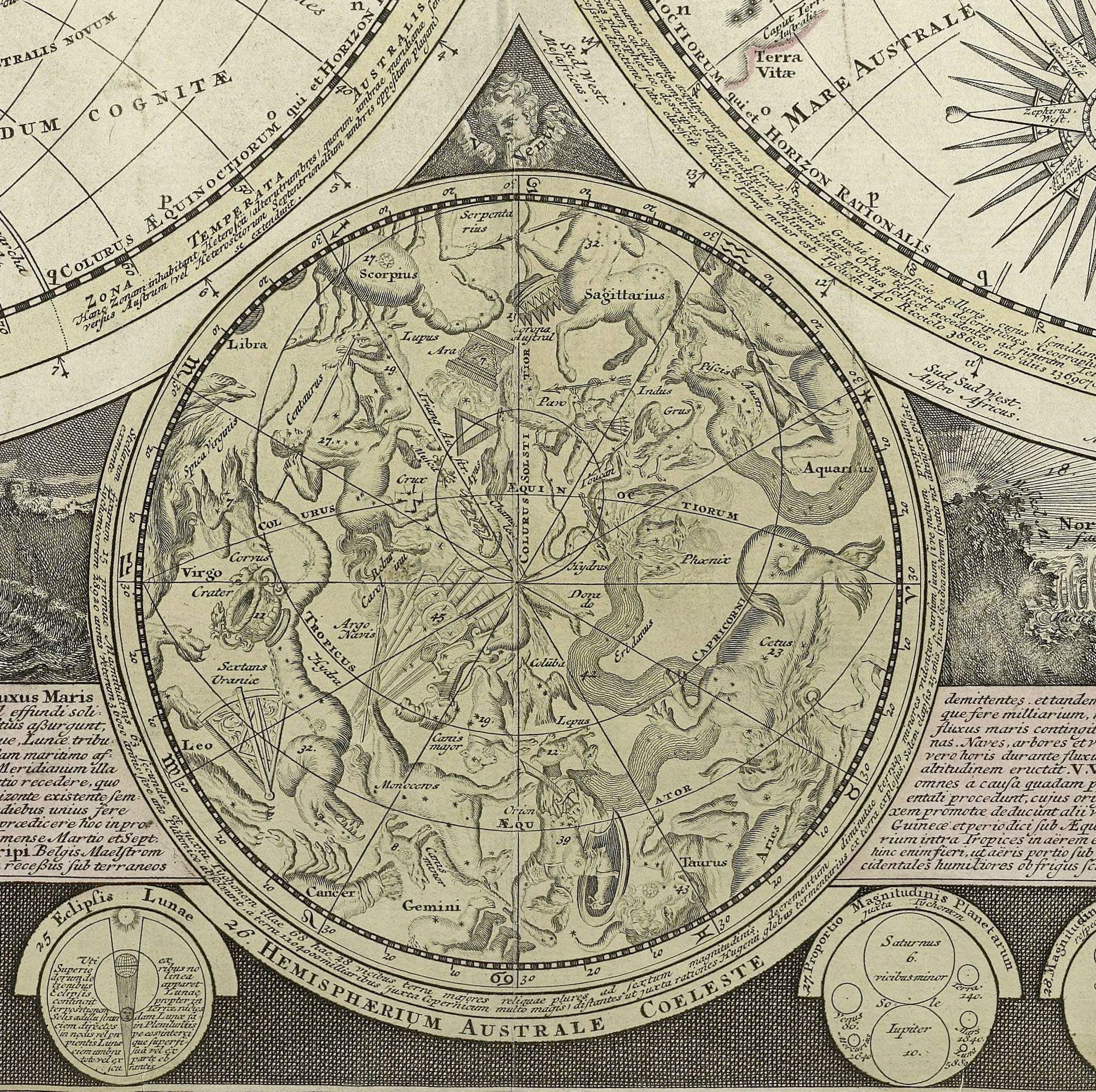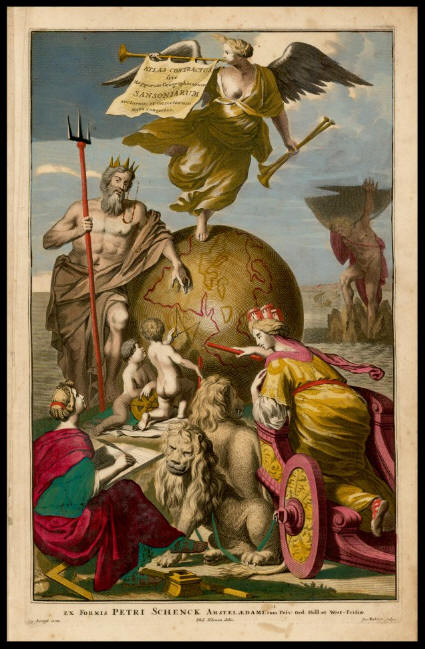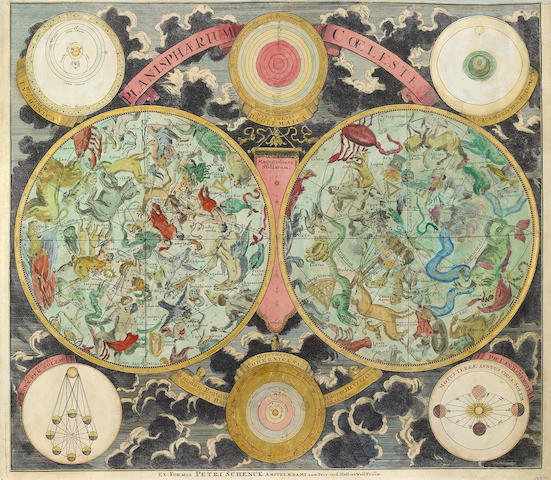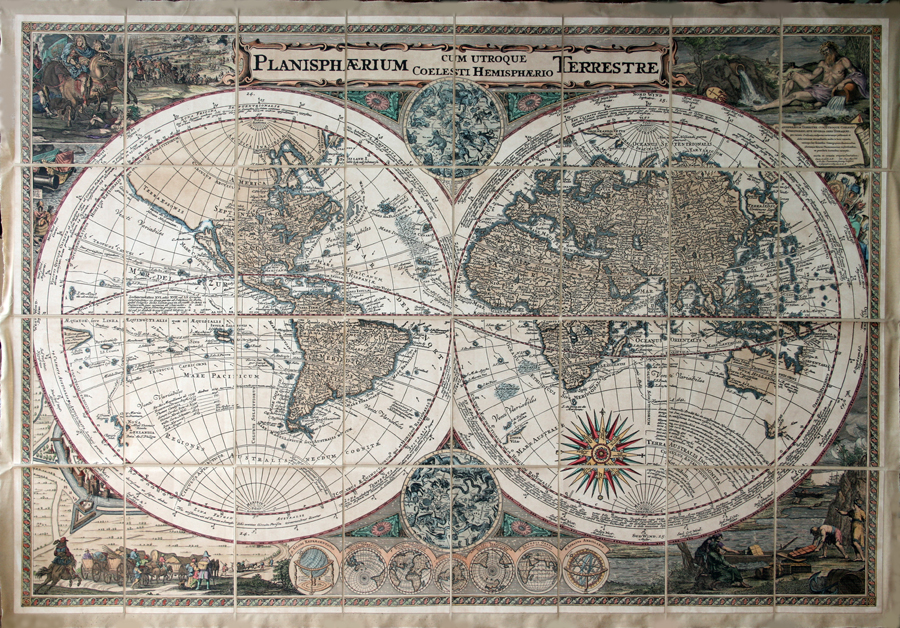
|
Adam Friedrich Zurner |
Planisphaerium Terrestre cum utroque Coelesti Hemisphaerio, sive Diversa Orbis Terraquei . . ., Amsterdam 1700 circa |
In costruzione
Adam Friedrich Zurner
Planisphaerium Terrestre cum utroque Coelesti Hemisphaerio, sive Diversa Orbis Terraquei . . ., Amsterdam 1700 circa
While
not primarily an astronomical map, this world map from the studio of the well
known 18th century German cartographer Adam Friedrich Zürner (1679-1742)
contains a wealth of astronomical details in the form of 26 inset diagrams and
illustrations.
Flanking
the terrestrial hemispheres above and below are Northern and Southern celestial
planispheres, which feature the Ptolemaic constellations as well as a few newer
ones. The geocentric solar systems of Ptolemy and Tycho Brahe are shown to the
side of each terrestrial hemisphere, and below are diagrams of the Copernican
system and the phases of the moon.
The
crowded strip at the foot of the map contains diagrams of planetary
configurations during solar and lunar eclipses, as well as an illustration of
the scales and distances of the planets. Forming a background to all this are
detailed illustrations of natural phenomena such as whirlpools, tides, and the
eruption of
Testo da
University of Michigan

Particolare dell'emisfero boreale in un'altra copia della tavola
Particolare dell'emisfero australe in un'altra copia della tavola
Per cortesia di
Barry Lawrence Ruderman
Antique Maps Inc.
La stessa tavola in un altro esemplare



La tavola venne prodotta nelle officine grafiche di P. Schenck con la destinazione di essere inserita nell'edizione del 1705 del grande atlante

Atlas contractus sive Mapparum Geographicarum Sansoniarum auctarum et correctarum nova congerie
Lo stesso atlante contiene un'altra bella mappa che riproduce il globo celeste alla quale quella di Zurner si ispira non soltanto per la riproduzione dei due emisferi celesti, che sebbene nella nostra siano più piccoli di diametro, quasi coincidono, ma anche per il corredo di schemi cosmogonici e di geografia generale che presenta:
Petrus Schenck
Planisphaerium Coeleste: Secundum Restitutionem Hevelianam et Hallejanam. Ex Formis Petri Schenck Amstelaedami, Amsterdam 1705

http://www.atlascoelestis.com/Schenck%20Planisphaerium%201705.htm
E' ipotizzabile che Adam Friedrich Zurner sia anche l'autore della seguente tavola che riporta nel cartiglio della dedica e del titolo il suo cognome incompleto:
Planisphaerium Terrestre cum utroque Coelesti Hemisphaerio, sive diversa orbis Terraquei, Amsterdam 1690-1700 circa

http://www.atlascoelestis.com/zurne%201690.htm
di FELICE STOPPA
SETTEMBRE 2013